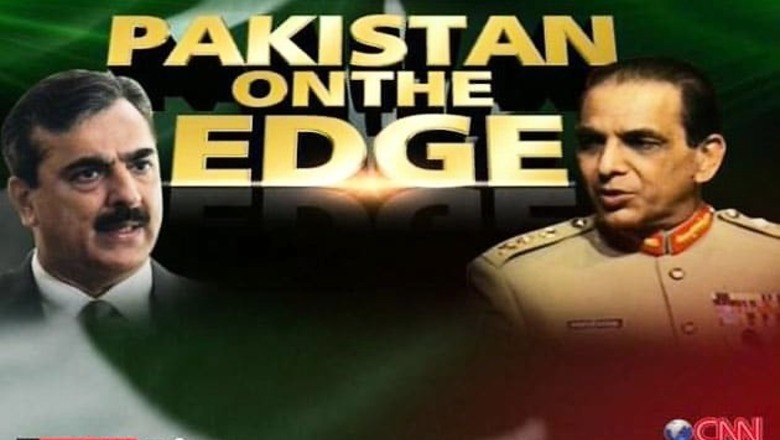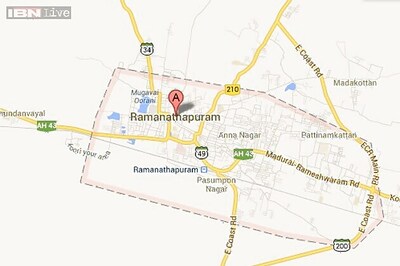
views
Islamabad: Pakistan's Army Chief is furious with the Prime Minister for statements criticising the army and has demanded that they be clarified or withdrawn, a senior military source said on Saturday.
Recent tension has raised fears for the stability of the nuclear-armed country and exposed a struggle between the government and the military, which has ousted three civilian governments in coups since independence in 1947 and has ruled the nation for more than half of its history.
"The army chief complained to the president about the prime minister's statements, and said they needed to be either clarified or withdrawn," the source said.
"He said such statements were divisive and made the country more vulnerable."
Prime Minister Yusuf Raza Gilani this week criticized Army Chief General Ashfaq Kayani and the director general of the Inter-Services Intelligence agency Lieutenant-General Ahmed Shuja Pasha for filing court papers in a case involving a mysterious memo that has pitted the military against the civilian government.
In an interview with Chinese media, Gilani said the filings were "unconstitutional", infuriating the military's high command, who issued a stern press release.
"There can be no allegation more serious than what the honourable prime minister has levelled," it said.
"This has very serious ramifications with potentially grievous consequences for the country."
Gilani further infuriated the army on Wednesday by sacking the defence secretary, retired Lieutenant General Naeem Khalid Lodhi, for "gross misconduct and illegal action which created misunderstanding" between institutions.
Lodhi was the most senior civil servant responsible for military affairs, a post usually seen as the military's main advocate in the civilian bureaucracy.
"The army is not going to concede an inch," said Najam Sethi, editor of The Friday Times. "Reconciliatory statements are for form, the demanding statement is the bottom line. The army is not going to do anything directly, the army will wait for the Supreme Court to lay down the rules and will back it to the hilt."
As angry as Kayani is, the military source said, the council of senior military commanders is even more angry. "There is a lot of pressure by the main corps commanders on the army chief regarding the statements of the prime minister."
The military, which sets foreign and security policies, drew rare public criticism after U.S. special forces killed al Qaeda leader Osama bin Laden on Pakistani soil in a raid in May 2011, an act seen by many Pakistanis as a violation of sovereignty.
Pakistanis rallied behind the military after a November 26 cross-border NATO air attack killed 24 Pakistani soldiers on the frontier with Afghanistan, driving ties with Washington to their lowest point in years.
"My sense is that the PM is also at the end of his tether," Sethi added. "I think his view is that we've done everything for these guys, and these guys have embarrassed us time and again. And these people have not once stood by us. And that is actually an accurate description of the ground realities."
The army's fury is cause for serious concern for the civilian government, and Gilani and President Asif Ali Zardari went on a charm offensive on Saturday.
"Our government and parliament, and above all our patriotic people, have stood fully behind our brave armed forces and security personnel," Gilani said at a cabinet defence committee meeting also attended by Kayani.
"It has been my government's policy to allow and enable all state institutions to play their role in their respective domains," he added.
Earlier, Zardari met Kayani in an attempt to mend fences.
"The current security situation was discussed," a presidential spokesman said, without giving any details.
Pakistan's politicians and media pundits have been abuzz with rumours of a possible coup since the memo controversy erupted in October.
The disputed memo - allegedly from Zardari's government, seeking US help in reining in the generals - has pushed relations between the civilian leadership and the military, to their lowest point since the last military coup in 1999.
The latest crisis also troubles Washington, which wants smooth ties between civilian and military leaders so that Pakistan can help efforts to stabilise neighbouring Afghanistan, a top priority for President Barack Obama.
Gilani's office denied a report on Friday that the prime minister this week called the British High Commissioner in Islamabad, expressing concerns that the army might be about to mount a coup, and asking for London to support the government.
An official at the high commission also denied the report.
"The problem really is the army doesn't want to be associated with this government and its leaders at any level in the public imagination," Sethi said. It wants to be seen as resisting them, standing up to them, rather than following them or obeying them."
"I think they want to see an end to this government. Nothing less than that will satisfy them."

















Comments
0 comment